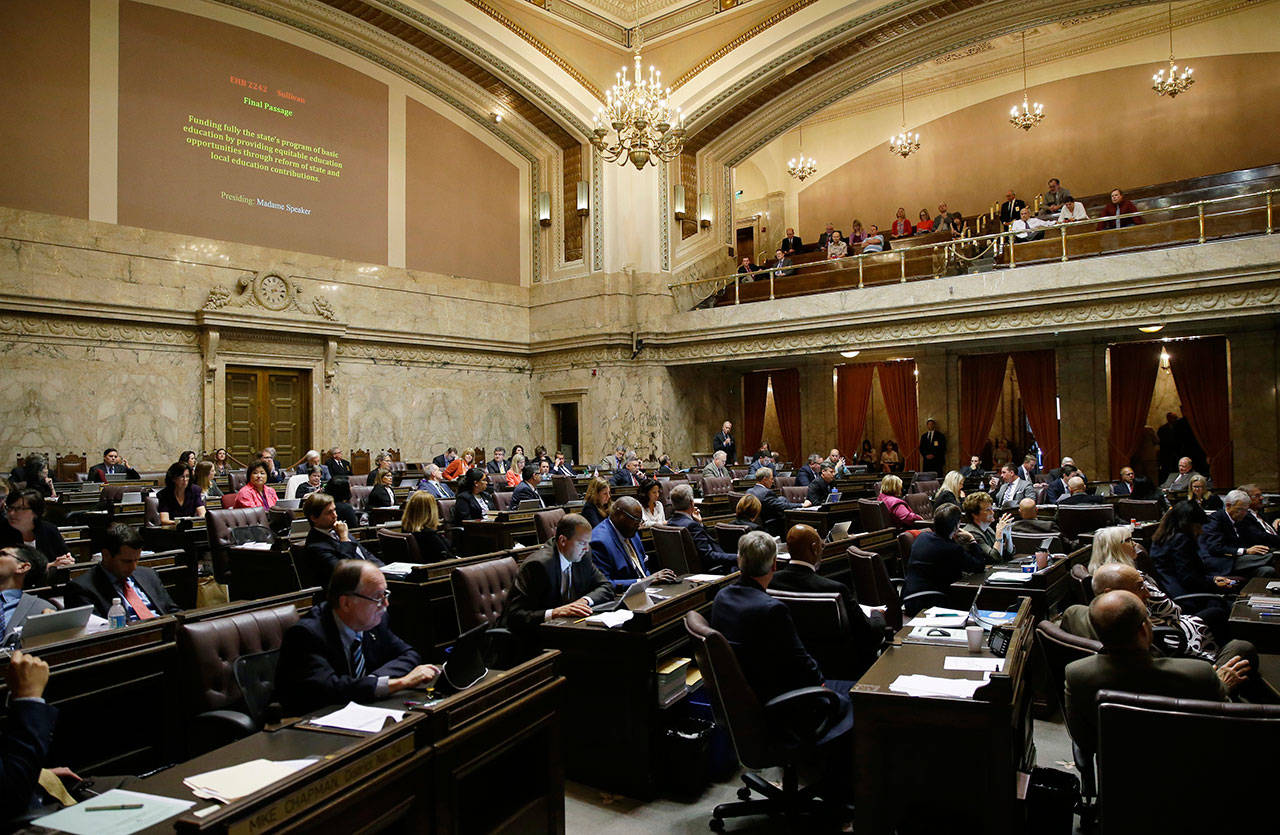By Rachel La Corte
The Associated Press
OLYMPIA — Sound Publishing, owner of the Peninsula Daily News, has joined a coalition of news organizations led by The Associated Press that is suing the state Legislature over its assertion that state lawmakers are not required to turn over daily schedules, emails, text messages and other materials related to their work.
The lawsuit, filed in Thurston County Superior Court on Tuesday, challenges lawmakers’ claim that language they added more than two decades ago to Washington’s public records law excludes them from stricter disclosure rules that apply to officials across the state, from school board members and county commissioners to agency heads.
Elected officials in the Washington House and Senate are withholding hundreds of highly important records, the lawsuit said, depriving the public of information essential to knowing what is going on in state government.
“The public has a right to know what its elected officials are doing behind closed doors,” AP Managing Editor Brian Carovillano said.
Besides the AP, the groups involved in the lawsuit are public radio’s Northwest News Network, KING-TV, KIRO 7, Allied Daily Newspapers of Washington, The Spokesman-Review, the Washington Newspaper Publishers Association, Sound Publishing, Tacoma News Inc. and The Seattle Times.
In addition to the Peninsula Daily News, Sound Publishing owns the Sequim Gazette and Forks Forum on the North Olympic Peninsula.
“We believe in the public’s right to know, and that includes what is happening with and around our elected officials. It is as simple as that,” said Sound President Gloria Fletcher.
The suit names the state Legislature, the Senate and House individually, and the leaders of the four political caucuses.
All U.S. states have some form of public disclosure laws, but many state lawmakers claim they are at least partially exempt. In a 2016 nationwide survey, a majority of top Republican and Democratic state lawmakers asserted they were not legally required to comply with open-records requests from AP seeking copies of their daily schedules and government emails.
Without access to such records, it’s harder for the public to know who is trying to influence their state lawmakers on important policy decisions, which groups and individuals they are meeting with, and what their priorities are as they debate spending tens of billions of dollars each year in tax money.
The lawsuit focuses on how the state Legislature interprets its 1995 revision to a 1971 definition of legislative records. Lawyers for the House and Senate regularly cite that change as a reason to withhold records, arguing that most of the lawmakers’ records — including calendars and text messages — are not considered public.
That is despite voters overwhelmingly passing an initiative in 1972 that affirmed the public’s right to “full access to public records so as to assure continuing public confidence in fairness of elections and governmental processes, and so as to assure that the public interest will be fully protected.”
The lawsuit argues that legislative lawyers’ interpretation of the 1995 change is wrong and legal action “is necessary to establish the Legislature did not reverse the will of the people in Initiative I-276 and remove or narrow its reach to the very elected individuals with which that initiative was so deeply concerned.”
The news organizations filed requests for records from all 147 Washington lawmakers earlier this year, seeking calendars that show whom they met with and how they spent their workdays during the regular and special legislative sessions from January through June. The coalition also sought text messages that were sent or received as part of their legislative duties.
While most forwarded the requests to their chamber’s attorneys, a few responded directly. At least one lawmaker seemed unaware that reporters have previously been thwarted in such requests.
Democratic Rep. Mike Sells used his response as an opportunity to criticize the request as a “sad comment on the state of our press.”
“[Five] months down the road and you are asking for this stuff for 5 months back when you [the press overall] should have been on top of it in the first place,” Sells wrote in an email.
Democratic Rep. Gerry Pollet released his whole calendar, writing in an email that “openness and disclosure regarding my public duties are vital for media and public accountability.”
Democratic Rep. Mike Pellicciotti also unveiled his full calendar, as well as text messages with his legislative assistant.
“These legislative records are in the public interest, and so I am voluntarily providing them as requested,” Pellicciotti wrote, adding he hoped his colleagues would do the same.
Lawyers for the Senate and House responded on behalf of the other lawmakers, saying that under the state’s definition of legislative records, the calendars and most text messages are not public records.
They forwarded a sole text that was a cellphone picture of one lawmaker’s per diem form. Lawmaker expenses and per diems are considered public records and regularly released when requested.
A second round of requests made by the media coalition’s attorney in July repeated the request for calendars and texts and sought additional information, including documentation of staff complaints against lawmakers throughout the past five years.
Legislative lawyers responded that while the data were not considered public records, they were voluntarily releasing some documents that had previously been reported, including a disciplinary letter to a state representative related to the treatment of a staffer.
Pellicciotti released additional calendar information and texts, and Democratic Rep. Kristine Reeves released her daily calendar.
The state Supreme Court ruled in 2013 that the governor can claim “executive privilege” as a reason to withhold some documents, but Gov. Jay Inslee has yet to do so since taking office. He releases emails, schedules and other documents when requested.

